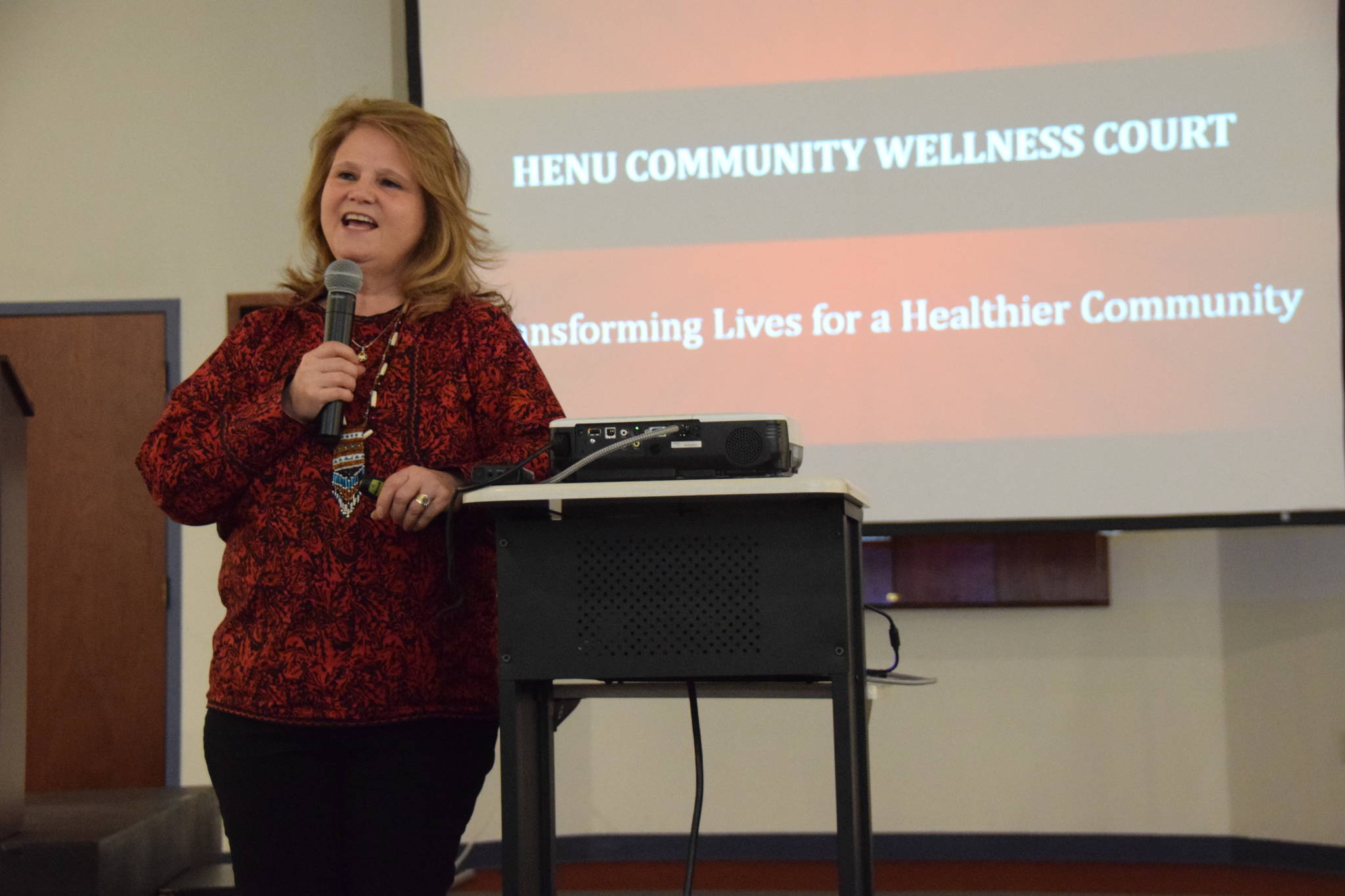At the Kenai Chamber of Commerce Luncheon on Wednesday, representatives from the Henu Community Wellness Court gave a presentation outlining their treatment and rehabilitation program. The presentation also featured testimony from one of the court’s graduates about the impact that Henu Community Wellness Court had on his recovery.
Judge Susan Wells, a Kenaitze Tribal Court Judge, spoke about how the program was started and the inspiration behind it. A few years ago Wells went to Minnesota to attend a conference with the National American Indian Court Judges Association, and while there she learned of a Minnesota Superior Court judge who was struggling with high rates of recidivism in his community. He reached out to his local tribal court judge on the Leech Lake Indian Reservation and they formed an informal partnership where they would hear cases together. Not long after, Wells said that recidivism for both Natives and non-Natives in the community dropped significantly. After hearing that story, Wells thought to herself, “If that can happen in Minnesota, I know Alaska can do it better.”
Wells eventually helped form the Henu Community Wellness Court, which was organized about two years ago as a collaboration between the Kenaitze Indian Tribe and the Alaska State Court System.
Henu is a Dena’ina word meaning “hard work,” and Wells said that the program — while intensive at times — is meant to transform lives. The Henu Court is designed for people with a history of nonviolent criminal offenses that are tied to substance abuse. Shera Burg, project coordinator for the court, says that they mainly look for people who have families and children and people who are facing long jail sentences or felony convictions. For example, the Henu Court can serve as a diversion program for those with felony DUI convictions to make it possible to get their driver’s license back after it has been revoked. Violent offenders, sex offenders and people charged with drug distribution are not eligible for the program.
Burg said that referrals to the program can be made by anyone, and potential participants meet with the court’s probation officers and treatment providers to assess whether they would be a fit for the program. After a decision has been reached by the court as a whole, treatment for the participant begins immediately and takes 18-24 months to complete.
Wells said that the Henu Wellness Court incorporates traditional Dena’ina values into an intensive outpatient treatment, with supervised transitional living and weekly drug tests. Patients are rewarded for continued participation with small gifts such as candy, movie tickets, clothing and gift cards that are donated by the community.
Eli Darien, the Henu Community Wellness Court’s first graduate, closed out the presentation by sharing his struggles with substance abuse and the criminal justice system and how the program helped him turn his life around. Before joining the program, Darien said he was in and out of Wildwood regularly and was addicted to heroin and meth.
“I was dying fast,” Darien said.
His probation officer helped him get into the program once it had started, and Darien described his experience with Henu as “life-changing.” Since Darien graduated from the Henu Community Wellness Court he has stayed involved as a mentor for new participants, started working at the tribe’s fishery, and got a job at Carr’s. He also expressed a desire to become a drug and alcohol counselor and has already taken a few classes in Anchorage.
“Today I see a future … I’m 57 years old, and I still have a future in this community and in this tribe,” Darien said.
After graduating from the program, participants are given a Dena’ina name. The name given to Darien translates to “He speaks from the heart.”
“That name tells me that the court was really listening to me the whole way,” he said.
The Henu Community Wellness Court will be celebrating a new round of graduates on April 5 at the Dena’ina Wellness Center. Anyone interested in learning more about the program can contact Project Coordinator Shera Burg at 907-283-8552.

